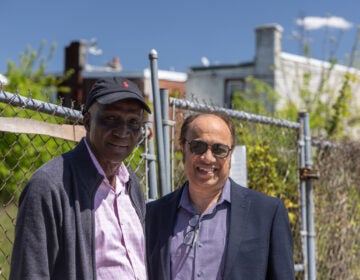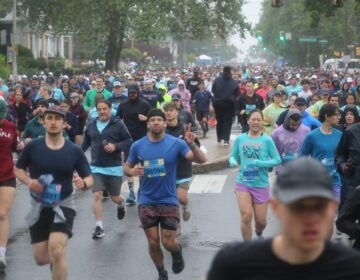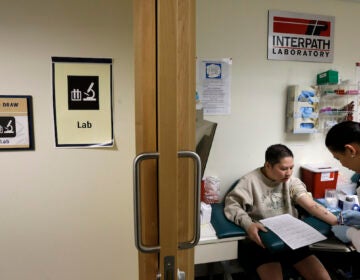Philly mental health community reflects on Byberry state hospital closure 25 years later

The children's ward at Byberry. (City of Philadelphia, Dept. of Records, Charles L. Howell, August 1927)
The Philadelphia mental health community marked the 25th anniversary of the closing of Philadelphia State Hospital at Byberry with a discussion at Temple University last week.
The hospital closed down three years after an investigation found dangerous conditions, mistreatment of patients and a substandard level of care.
Mark Davis was a member of the commission that issued the report prompting Byberry’s closure. While many people would like to forget Byberry’s appalling and inhumane history, he said, the city should do more to honor the memory of patients who died there.
“To me this is a start. It was a frustration for five, 10, 15, 20 [years] to get this commemoration to happen,” said Davis. “And there are many things we can do, from a mural to a memorial to a monument. Everything we do to memorialize people, places, and things are important for us to honor and respect the people that suffered.”
Byberry’s closing in 1990 spurred the shutdown of several other state hospitals, including Harrisburg.
During the discussion at Temple last week, panelists called for continuing the peer and community support that’s proved successful in treating mental health patients as state hospitals have closed.
Dennis Fisher, a former Byberry employee who directs a training program for mental health workers, said he’s convinced patients are better off receiving mental health support from the community.
“It’s smaller, its more personal, it gives people a chance to relate to each other,” said Fisher. “Institutions by nature dehumanize folks or take away the humanity of folks just in order to be efficient and work.”
Last year, the city launched a chapter of the program Mental Health First Aid, which teaches people how to identify and respond to a mental health emergency.
WHYY is your source for fact-based, in-depth journalism and information. As a nonprofit organization, we rely on financial support from readers like you. Please give today.




